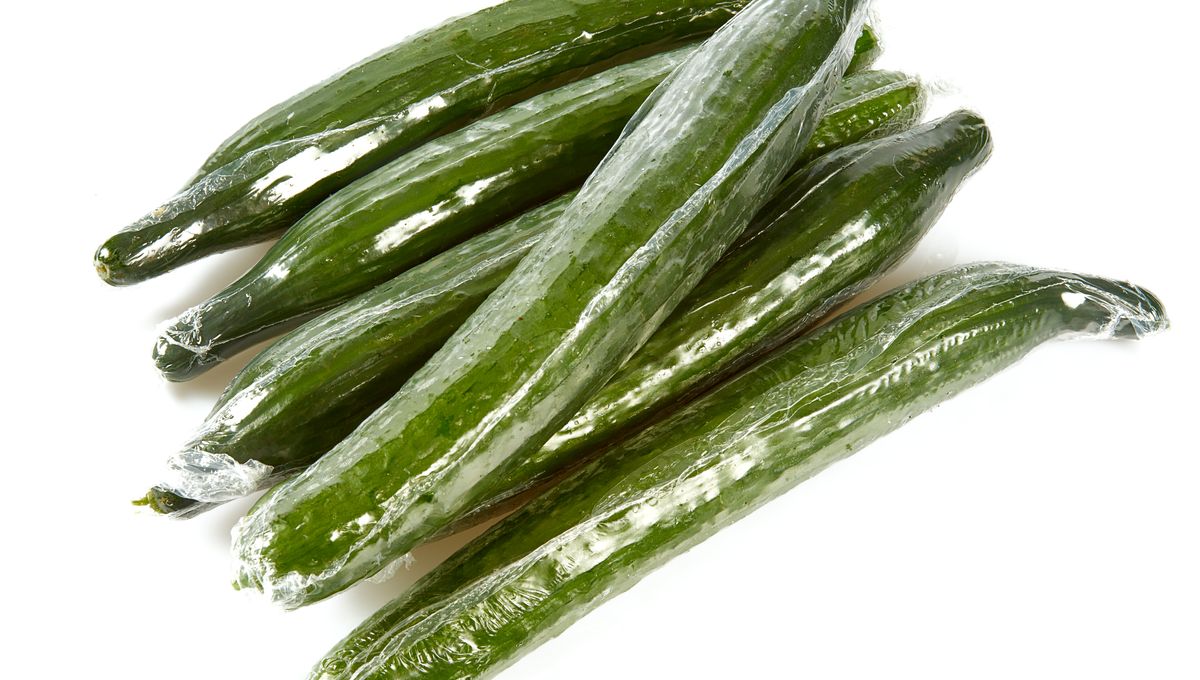
Cucumbers are a berry of many talents: they’re great for your health, they’re a tasty addition to both a salad and a burger, and they terrify kittycats. But while they might be good for us, the discerning shopper may worry that they’re not that great for the planet – after all, they’re almost always sold individually shrink-wrapped in a plastic coating.
Surely, as we all become more and more aware of the environmental harms of single-use plastic, this is something that should have been phased out years ago? Well, it turns out there are a few pretty good reasons for selling cucumbers like this – and it mostly comes down to keeping them as fresh and tasty as possible, for as long as possible.
Covering the cukes with plastic helps keep the moisture inside – pretty important for a fruit that is around 95 percent water. Because they have thin skins, cucumbers stored without a plastic covering can lose moisture quite quickly, resulting in – well, the kind of cucumbers you’ve likely seen in your own fridge a couple of days after opening them.
Keeping moisture in isn’t the only thing this plastic barrier does, however – it also keeps oxygen out. That’s important since almost all foodborne pathogens need oxygen to survive. It’s worth noting that, out of the FAT TOM mnemonic – it stands for Food, Acidity, Time, Temperature, Oxygen, and Moisture, the group of six conditions needed for the growth of foodborne pathogens – your standard cucumber already fulfills F, A, and M, so it needs all the help it can get (As for the other two letters – the two Ts – well, there’s a reason we keep these long green veggies in the fridge and eat them quick).
Restricting the amount of oxygen that can access the cuke, then, is a good way to restrict the amount of potentially harmful microorganisms that can flourish in it – though, unfortunately, some, like botulism or salmonella, won’t be stopped this way.
Finally, wrapping the cucumbers in plastic provides an important extra layer of protection for the produce. Their thin skins are easily bruised and nicked, and while that makes them less likely to be picked up by customers for aesthetic reasons, it’s also yet another way for rot and mold to set in.
If you’re still worried about the environmental impact of the plastic wrap, though, rest easy: not only are manufacturers already researching more eco-friendly options, but research suggests the single-use, single-cuke option might actually be the best option in any case.
Throwing away a whole cucumber due to it becoming rotten or inedible has the equivalent environmental impact of a whopping 93 plastic wraps, according to one 2022 paper; put simply, without the protection offered by this salad prophylactic, your cucumber-based carbon footprint may actually be bigger than it currently is.
In short, then, these individual plastic wraps may look wasteful and uneconomical, but they’re actually very important. At least, if you’re hoping not to get sick from a cucumber-borne illness.
[H/T Simply Recipes]
Source Link: Why Do Cucumbers Come Individually Wrapped In Plastic?